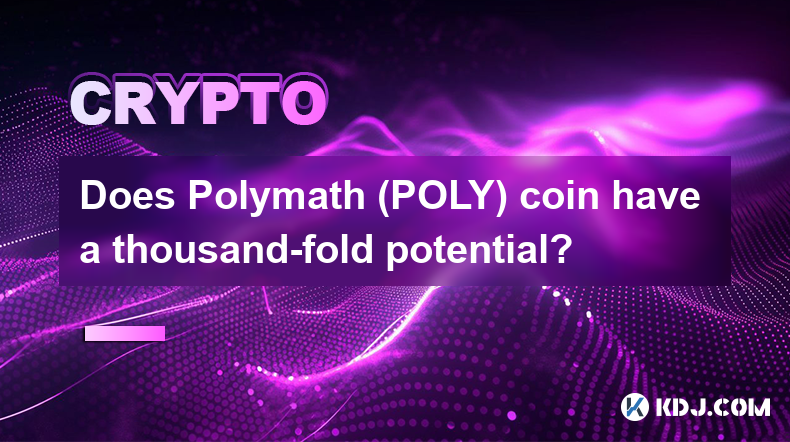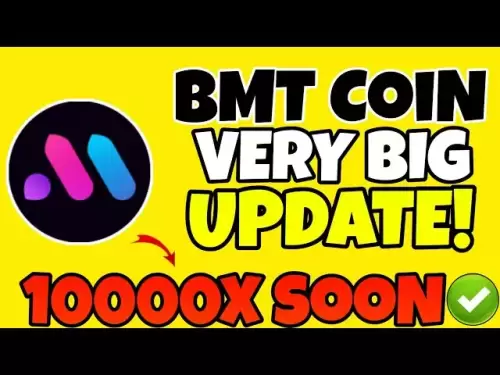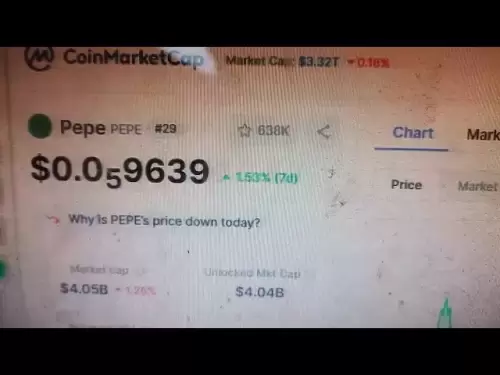-
 Bitcoin
Bitcoin $108,250.0992
0.11% -
 Ethereum
Ethereum $2,515.9404
0.03% -
 Tether USDt
Tether USDt $1.0003
0.00% -
 XRP
XRP $2.2166
-0.19% -
 BNB
BNB $656.5904
0.29% -
 Solana
Solana $147.4122
-0.58% -
 USDC
USDC $1.0000
-0.01% -
 TRON
TRON $0.2830
0.06% -
 Dogecoin
Dogecoin $0.1641
0.27% -
 Cardano
Cardano $0.5739
-0.19% -
 Hyperliquid
Hyperliquid $39.1463
-0.11% -
 Sui
Sui $2.8882
-0.02% -
 Bitcoin Cash
Bitcoin Cash $487.6428
0.31% -
 Chainlink
Chainlink $13.2097
0.07% -
 UNUS SED LEO
UNUS SED LEO $9.0308
0.10% -
 Avalanche
Avalanche $17.8608
0.13% -
 Stellar
Stellar $0.2379
-0.06% -
 Toncoin
Toncoin $2.7400
-0.39% -
 Shiba Inu
Shiba Inu $0.0...01144
-0.36% -
 Litecoin
Litecoin $87.5467
0.66% -
 Hedera
Hedera $0.1538
0.22% -
 Monero
Monero $315.5479
0.36% -
 Dai
Dai $1.0000
0.00% -
 Polkadot
Polkadot $3.3523
-0.71% -
 Ethena USDe
Ethena USDe $1.0003
0.01% -
 Bitget Token
Bitget Token $4.3960
-1.03% -
 Uniswap
Uniswap $7.2663
4.19% -
 Aave
Aave $272.8619
2.04% -
 Pepe
Pepe $0.0...09676
-0.18% -
 Pi
Pi $0.4586
-2.87%
Does Polymath (POLY) coin have a thousand-fold potential?
Polymath's unique platform, strategic partnerships, and strong team position it as a formidable player in the evolving security token issuance market, driving its growth and potential for significant returns.
Dec 27, 2024 at 07:17 am

Key Points
- Polymath's unique solution to security issuance and management.
- Strategic partnerships and collaborations driving POLY's growth.
- Strong technical foundation and team behind Polymath.
- Competition and challenges in the security token issuance space.
- Market capitalization, circulating supply, and trading volume of POLY.
- Importance of due diligence and research for potential investors.
Does Polymath (POLY) Coin Have a Thousand-Fold Potential?
Introduction
Polymath (POLY) is a decentralized platform that simplifies the issuance and management of security tokens. By leveraging blockchain technology, Polymath aims to revolutionize capital markets by making it easier, faster, and more secure to create and trade security tokens. The POLY token, the native cryptocurrency of the Polymath platform, plays a crucial role in facilitating transactions and powering the ecosystem.
Understanding Polymath's Value Proposition
Polymath's value proposition lies in its ability to address the key challenges associated with traditional security issuance and management:
- High costs and complexity: Polymath eliminates the need for intermediaries and automates the process,大幅降低成本和复杂性。
- Regulatory uncertainty: Polymath incorporates regulatory compliance into its platform, providing a framework for issuers to navigate the often-complex regulatory landscape.
- Lack of liquidity: Polymath fosters liquidity by creating a network of token exchanges and secondary markets.
Strategic Partnerships and Collaborations
Polymath has forged strategic partnerships with leading players in the cryptocurrency and financial industries, including:
- Coinbase: One of the largest cryptocurrency exchanges, providing liquidity and exposure to POLY.
- Binance: Another major cryptocurrency exchange, further expanding POLY's reach.
- Bittrex: A regulated cryptocurrency exchange, adding credibility and trust to the platform.
- Global Blockchain Business Council: A non-profit organization promoting blockchain adoption, providing Polymath with industry support.
Strong Technical Foundation and Team
Polymath's success is underpinned by its strong technical foundation and experienced team:
- Technology: Polymath utilizes state-of-the-art blockchain technology to ensure security, transparency, and automation.
- Team: The team behind Polymath consists of seasoned professionals with expertise in finance, technology, and regulation.
Competition and Challenges
The security token issuance market is a rapidly evolving landscape with several competitors. Notable players include:
- Securitize: A leading provider of security token issuance and management solutions.
- Tokeny: A platform for tokenizing real assets and securities.
- tZero: A regulated security token exchange and trading platform.
Key challenges include:
- Regulatory clarity: Navigating the evolving regulatory environment for security tokens remains a challenge.
- Market adoption: Widespread adoption of security tokens by issuers and investors is essential for the growth of the market.
- Competition: Fierce competition from established players and emerging startups can impact Polymath's market share.
Market Capitalization, Circulating Supply, and Trading Volume
As of [date], Polymath's market capitalization is approximately [value]. The circulating supply of POLY is currently [number], out of a total supply of [number]. POLY is traded on several cryptocurrency exchanges, with an average daily trading volume of approximately [value].
Importance of Due Diligence and Research
Potential investors in POLY should conduct thorough due diligence and research before making any investment decisions:
- Understand the Polymath platform and its value proposition.
- Analyze the market opportunity and competitive landscape.
- Evaluate the team and the technology behind Polymath.
- Monitor regulatory developments and their potential impact.
- Only invest what you are prepared to lose.
FAQs
- What is the purpose of the POLY token?
POLY is the native cryptocurrency of the Polymath platform. It is used to pay for gas fees, participate in governance, and facilitate transactions on the platform.
- What factors could affect the price of POLY?
Factors that could affect the price of POLY include the growth of the security token market, regulatory developments, and the performance of the Polymath platform.
- How can I purchase POLY tokens?
POLY tokens can be purchased on several cryptocurrency exchanges, including Coinbase, Binance, and Bittrex.
- What are the risks associated with investing in POLY?
As with any cryptocurrency investment, there are risks associated with investing in POLY, including market volatility, regulatory changes, and the potential failure of the Polymath platform.
- What are the potential returns on investing in POLY?
The potential returns on investing in POLY will vary depending on market conditions and the success of the Polymath platform. It is important to remember that all investments carry risk, and past performance does not guarantee future results.
Disclaimer:info@kdj.com
The information provided is not trading advice. kdj.com does not assume any responsibility for any investments made based on the information provided in this article. Cryptocurrencies are highly volatile and it is highly recommended that you invest with caution after thorough research!
If you believe that the content used on this website infringes your copyright, please contact us immediately (info@kdj.com) and we will delete it promptly.
- Litecoin Breakout Watch: What Traders Need to Know Now
- 2025-07-06 16:50:13
- Bitcoin, Solana, Ethereum: Decoding the Latest Buzz on the Blockchain
- 2025-07-06 16:50:13
- Widnes Resident's 50p Could Be Your Ticket to Easy Street: Rare Coin Mania!
- 2025-07-06 16:55:13
- Bitcoin, Solaris Presale, and Token Rewards: What's the Buzz?
- 2025-07-06 16:55:13
- Ethereum Under Pressure: Price Drop Amid Global Uncertainties
- 2025-07-06 17:00:13
- XRP, SEC Case, and Prosperity: A New Era for XRP Holders?
- 2025-07-06 17:10:13
Related knowledge

How to customize USDT TRC20 mining fees? Flexible adjustment tutorial
Jun 13,2025 at 01:42am
Understanding USDT TRC20 Mining FeesMining fees on the TRON (TRC20) network are essential for processing transactions. Unlike Bitcoin or Ethereum, where miners directly validate transactions, TRON uses a delegated proof-of-stake (DPoS) mechanism. However, users still need to pay bandwidth and energy fees, which are collectively referred to as 'mining fe...

USDT TRC20 transaction is stuck? Solution summary
Jun 14,2025 at 11:15pm
Understanding USDT TRC20 TransactionsWhen users mention that a USDT TRC20 transaction is stuck, they typically refer to a situation where the transfer of Tether (USDT) on the TRON blockchain has not been confirmed for an extended period. This issue may arise due to various reasons such as network congestion, insufficient transaction fees, or wallet-rela...

How to cancel USDT TRC20 unconfirmed transactions? Operation guide
Jun 13,2025 at 11:01pm
Understanding USDT TRC20 Unconfirmed TransactionsWhen dealing with USDT TRC20 transactions, it’s crucial to understand what an unconfirmed transaction means. An unconfirmed transaction is one that has been broadcasted to the blockchain network but hasn’t yet been included in a block. This typically occurs due to low transaction fees or network congestio...

How to check USDT TRC20 balance? Introduction to multiple query methods
Jun 21,2025 at 02:42am
Understanding USDT TRC20 and Its ImportanceUSDT (Tether) is one of the most widely used stablecoins in the cryptocurrency market. It exists on multiple blockchain networks, including TRC20, which operates on the Tron (TRX) network. Checking your USDT TRC20 balance accurately is crucial for users who hold or transact with this asset. Whether you're sendi...

What to do if USDT TRC20 transfers are congested? Speed up trading skills
Jun 13,2025 at 09:56am
Understanding USDT TRC20 Transfer CongestionWhen transferring USDT TRC20, users may occasionally experience delays or congestion. This typically occurs due to network overload on the TRON blockchain, which hosts the TRC20 version of Tether. Unlike the ERC20 variant (which runs on Ethereum), TRC20 transactions are generally faster and cheaper, but during...

The relationship between USDT TRC20 and TRON chain: technical background analysis
Jun 12,2025 at 01:28pm
What is USDT TRC20?USDT TRC20 refers to the Tether (USDT) token issued on the TRON blockchain using the TRC-20 standard. Unlike the more commonly known ERC-20 version of USDT (which runs on Ethereum), the TRC-20 variant leverages the TRON network's infrastructure for faster and cheaper transactions. The emergence of this version came as part of Tether’s...

How to customize USDT TRC20 mining fees? Flexible adjustment tutorial
Jun 13,2025 at 01:42am
Understanding USDT TRC20 Mining FeesMining fees on the TRON (TRC20) network are essential for processing transactions. Unlike Bitcoin or Ethereum, where miners directly validate transactions, TRON uses a delegated proof-of-stake (DPoS) mechanism. However, users still need to pay bandwidth and energy fees, which are collectively referred to as 'mining fe...

USDT TRC20 transaction is stuck? Solution summary
Jun 14,2025 at 11:15pm
Understanding USDT TRC20 TransactionsWhen users mention that a USDT TRC20 transaction is stuck, they typically refer to a situation where the transfer of Tether (USDT) on the TRON blockchain has not been confirmed for an extended period. This issue may arise due to various reasons such as network congestion, insufficient transaction fees, or wallet-rela...

How to cancel USDT TRC20 unconfirmed transactions? Operation guide
Jun 13,2025 at 11:01pm
Understanding USDT TRC20 Unconfirmed TransactionsWhen dealing with USDT TRC20 transactions, it’s crucial to understand what an unconfirmed transaction means. An unconfirmed transaction is one that has been broadcasted to the blockchain network but hasn’t yet been included in a block. This typically occurs due to low transaction fees or network congestio...

How to check USDT TRC20 balance? Introduction to multiple query methods
Jun 21,2025 at 02:42am
Understanding USDT TRC20 and Its ImportanceUSDT (Tether) is one of the most widely used stablecoins in the cryptocurrency market. It exists on multiple blockchain networks, including TRC20, which operates on the Tron (TRX) network. Checking your USDT TRC20 balance accurately is crucial for users who hold or transact with this asset. Whether you're sendi...

What to do if USDT TRC20 transfers are congested? Speed up trading skills
Jun 13,2025 at 09:56am
Understanding USDT TRC20 Transfer CongestionWhen transferring USDT TRC20, users may occasionally experience delays or congestion. This typically occurs due to network overload on the TRON blockchain, which hosts the TRC20 version of Tether. Unlike the ERC20 variant (which runs on Ethereum), TRC20 transactions are generally faster and cheaper, but during...

The relationship between USDT TRC20 and TRON chain: technical background analysis
Jun 12,2025 at 01:28pm
What is USDT TRC20?USDT TRC20 refers to the Tether (USDT) token issued on the TRON blockchain using the TRC-20 standard. Unlike the more commonly known ERC-20 version of USDT (which runs on Ethereum), the TRC-20 variant leverages the TRON network's infrastructure for faster and cheaper transactions. The emergence of this version came as part of Tether’s...
See all articles

























































































